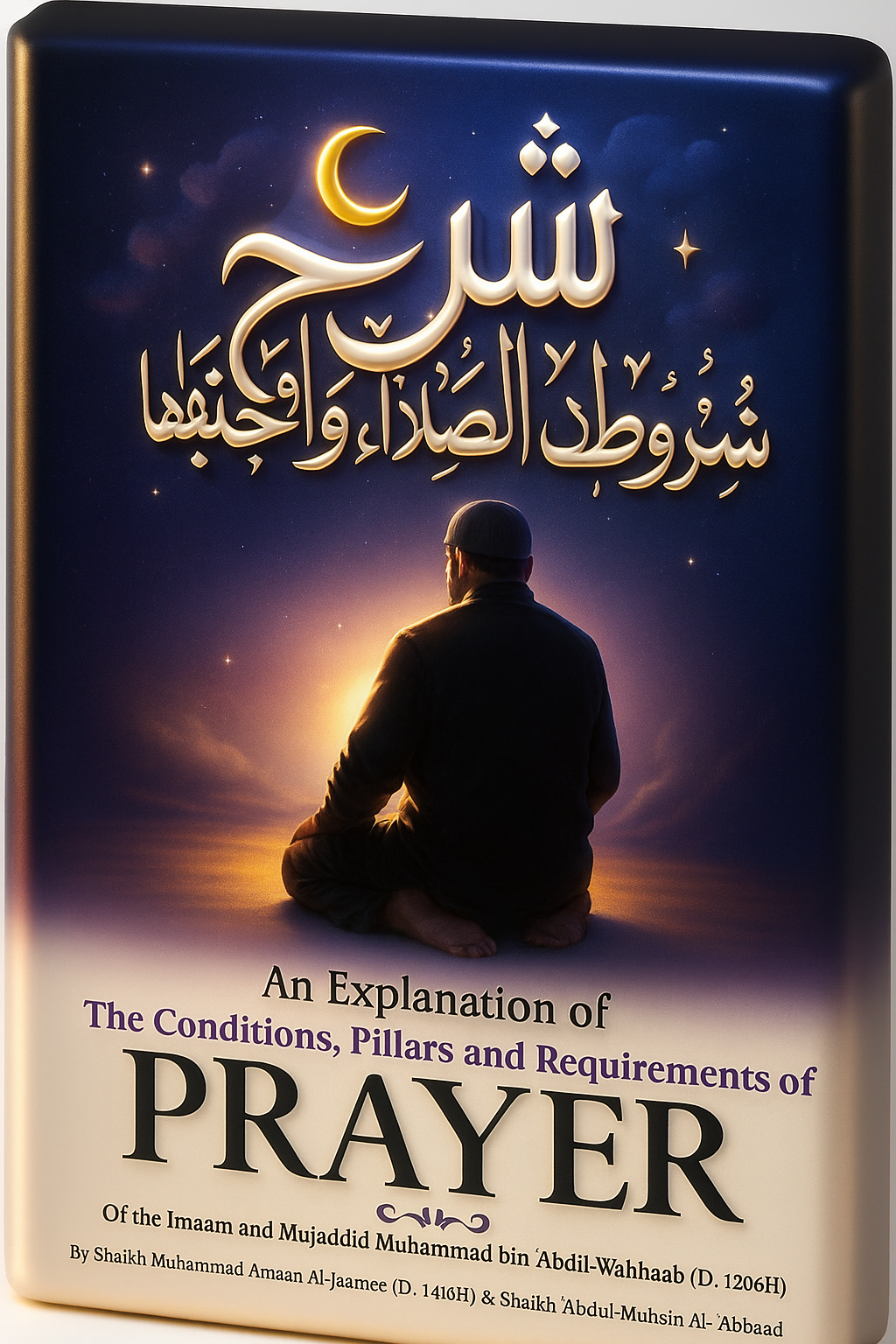Hub For Your Daily Islamic Insights 🕋 🕌

An Explanation of The Conditions, Pillars and Requirements of Prayer, Comprehensive Islamic guide on prayer essentials.
Comprehensive Islamic guide on prayer essentials
Free
Unlock the essentials of Islamic prayer with this comprehensive guide, 'An Explanation of the Conditions, Pillars, and Requirements of Prayer.' Authored by esteemed scholars, this book offers clear, accessible insights into every aspect of proper prayer practices. Whether you're a beginner seeking step-by-step instruction or a seasoned worshipper desiring deeper understanding, this resource is your perfect companion on the path to spiritual growth. Presented in an easy-to-read format, this softcover edition measures 6 x 9 inches, making it ideal for at-home study or taking with you to the mosque. Enhance your connection to daily prayers and elevate your worship experience with this trusted, invaluable reference.
## Comprehensive Guide to Prayer in Islam ### Introduction Prayer (Salah) is a fundamental pillar of Islam, serving as a direct link between the believer and Allah (God). It acts as a means of guidance, support, and spirituality in a Muslim's daily life. This guide elaborates on the conditions, pillars, and requirements of prayer, providing a complete overview of its significance in Islamic practice. ### Importance of Prayer Prayer is one of the Five Pillars of Islam, which are considered the foundation of a Muslim's faith and practice. Observing the five daily prayers is obligatory for every adult Muslim, and it communicates both obedience to Allah's command and an opportunity for spiritual reflection. ### Conditions of Prayer Before performing Salah, certain conditions must be met to ensure the prayer is valid. These conditions include: 1. **Islam**: The individual must be a Muslim. 2. **Sanity**: The person must be of sound mind. 3. **Puberty**: The individual should have reached the age of puberty, which is generally considered to be around 12-15 years in both boys and girls. 4. **Cleanliness**: The individual should be in a state of physical and spiritual purity, which entails: - **Wudu (Ablution)**: A ritual washing before prayer to cleanse oneself. - **Ghusl (Full Ritual Purification)**: Required in certain situations (e.g., after certain sexual acts, menstruation). 5. **Appropriate Clothing**: The clothes worn must be clean and cover the body according to Islamic guidelines. 6. **Direction (Qibla)**: The prayer must be offered in the direction of the Kaaba in Mecca, Saudi Arabia. 7. **Time**: Each of the five daily prayers has a designated time frame during which it must be performed. ### Pillars of Prayer The prayer itself consists of several essential components, referred to as "pillars" (rukn). These pillars must be observed for the prayer to be considered valid: 1. **Intention (Niyyah)**: Before commencing, the individual must have the internal resolve or intention to perform the prayer. 2. **Takbir al-Ihram**: The opening declaration of prayer, which involves raising both arms and saying, "Allahu Akbar" (Allah is the Greatest). 3. **Standing (Qiyam)**: The individual should stand upright while reciting the opening chapter of the Quran (Al-Fatiha) and any other surah. 4. **Recitation of Surah Al-Fatiha**: This chapter must be recited in every unit (rak'ah) of the prayer. 5. **Bow (Ruku)**: A physical act where one bows at the waist, with hands on knees, keeping the back straight. 6. **Prostration (Sujud)**: The act of prostrating on the ground in submission to Allah, ensuring the forehead, nose, both palms, knees, and toes touch the floor. 7. **Sitting (Tashahhud)**: A brief period of sitting within the prayer to recite certain supplications. 8. **Tasleem**: The concluding salute, typically made by turning the head to the right and then to the left while saying, "Assalamu Alaikum wa Rahmatullah" (Peace and mercy of Allah be upon you). ### Requirements of Prayer To ensure that prayer is performed correctly, certain requirements should be fulfilled: 1. **Proper Timing**: Knowing the prayer times is essential. The five obligatory prayers are: - **Fajr**: Before dawn - **Dhuhr**: After midday - **Asr**: Late afternoon - **Maghrib**: Just after sunset - **Isha**: Night 2. **Clean Praying Environment**: Performing prayer in a clean, quiet place free of distractions is encouraged. 3. **Concentration (Khushu)**: Maintaining focus during prayer, reciting with understanding and devotion. 4. **Supplications (Dua)**: Making personal supplications before and after completing the prayer is highly encouraged and considered beneficial. 5. **Community Prayer (Jama'ah)**: It is highly meritorious to pray in congregation, particularly for the Friday prayer (Jumu’ah). ### Additional Considerations - **Voluntary Prayers**: Aside from the obligatory prayers, Muslims may engage in Sunnah (acts following the Prophet Muhammad's practice) and Nafl (optional) prayers. These prayers are encouraged and greatly rewarded. - **Qada (Making Up Prayers)**: If a prayer is missed, it is required to make it up as soon as possible. - **Salah and Times of Distress**: Salah serves as a source of comfort and spiritual solace during times of distress or difficulties. ### Conclusion Understanding and practicing Salah is essential for every Muslim. It is not merely a ritual but rather a deep-seated connection fostered with Allah, offering spiritual benefits and communal solidarity among Muslims. By adhering to the conditions, pillars, and requirements laid out, believers can ensure their prayers are performed correctly and beneficially.
